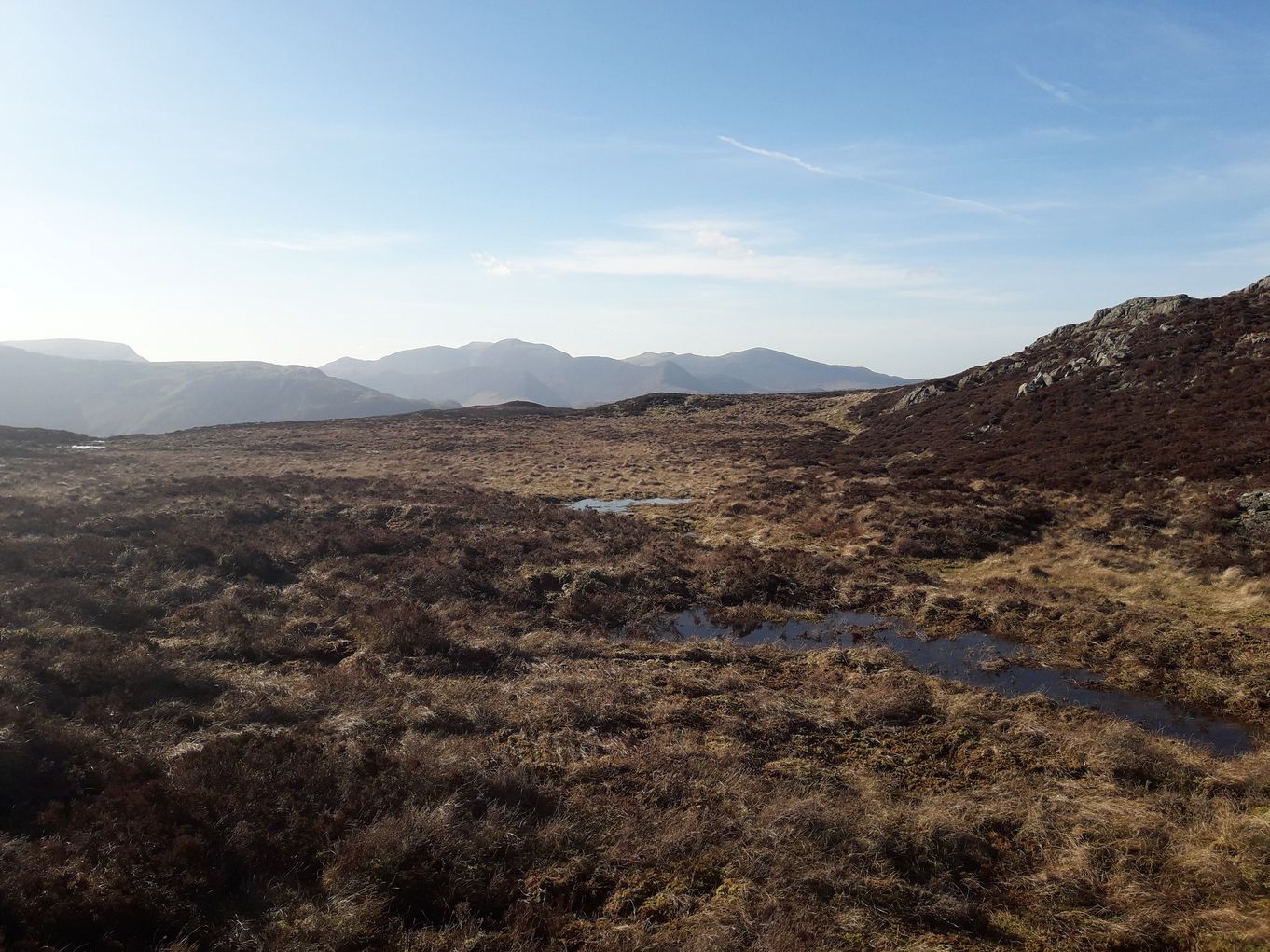Peat Bog Restoration At Armboth Fell Supported By Charitable Funds Thanks To Keswick Mountain Festival-Goers
With its return to Crow Park for the annual programme of sports and outdoor events (20-22 May), Keswick Mountain Festival will be raising funds for National Trust projects in Borrowdale as it has done for the last few years. Just a few miles away is one of the projects that has been supported by funds raised previously – the peat bog restoration at Armboth Fell.
The National Trust’s Riverlands project has worked in partnership with Cumbria Wildlife Trust, United Utilities, Fix the Fells and Natural England to restore this important section of peat bog and the second phase of works have just completed. The Pewits area of Armboth Fell, a designated Site of Special Scientific Interest (SSSI), features numerous rare plant species and is vitally important for storing water, as well as for carbon capture. Healthy peatlands act as sponges, capturing rainfall and slowing the flow of water into river systems.
The area around The Pewits had suffered significant degradation causing to the peat to dry out and erode, which was exacerbated as walkers and livestock were forced to find safe paths across away from the usual routes. The restoration has reshaped uneven peat surfaces to slow water flow and stop erosion. Any bare ground was then fertilised and reseeded and pool edges planted. A durable footpath was installed to protect the surrounding peat bog as it recovers. The second phase worked to reprofile peat hags and install ‘leaky dams’, helping to retain water and supporting regeneration of sphagnum moss, cotton grass and other bog species.
Since the completion of the first phase of works, the area has recovered well, with lots of new vegetation establishing across the restoration. This includes Sphagnum moss, a peat-forming bog moss which is a fabulous water store and filter. Healthy upland peat bogs act as large sponges, capturing rainfall and slowing the flow as water is filtered through the vegetation. They are also home to an extraordinary wealth of wildlife and are the UKs largest carbon store.
As a supported charity of the Keswick Mountain Festival, festivalgoers participating in the sporting events become community fundraisers for the project. Funds raised at the 2022 event will help the National Trust to deliver the next phase of work to improve the health of rivers in the Derwent catchment.
Rebecca Powell, Project Manager at the National Trust says: “We’re so grateful to Keswick Mountain Festival for continuing to support these conservation projects, such as those bringing our essential waterways flowing back to life. Their charitable support will help us to protect and preserve the places and spaces people love – and will continue to care for the wildlife that depends on it.”
Future projects that will benefit include improvements to Stonethwaite Beck upstream of Rosthwaite, enhancing Barrow Beck where it joins the lake, and creating ponds below Setmurthy Common - all part of the Derwent Riverlands programme this year.
Home to otters, Atlantic salmon and vendace, the UK’s rarest freshwater fish, the River Derwent is facing increasing pressures from tourism, changing farming legislation, and climate change that is increasing rainfall in the wettest part of England. Many stretches of the river and its tributaries have been modified over hundreds of years which has lead to it moving away from its original course along the bottom of the valley. In some places, slow, meandering waterways have been changed to straightened, fast-moving becks or rivers disconnected from their historic floodplains and that respond quickly to rainfall. The Derwent Riverlands project is part funded by the European Agricultural Fund for Rural Development.
To find out more information about Keswick Mountain Festival, as well as how to take part and raise funds for these vital projects, visit www.keswickmountainfestival.co.uk.

